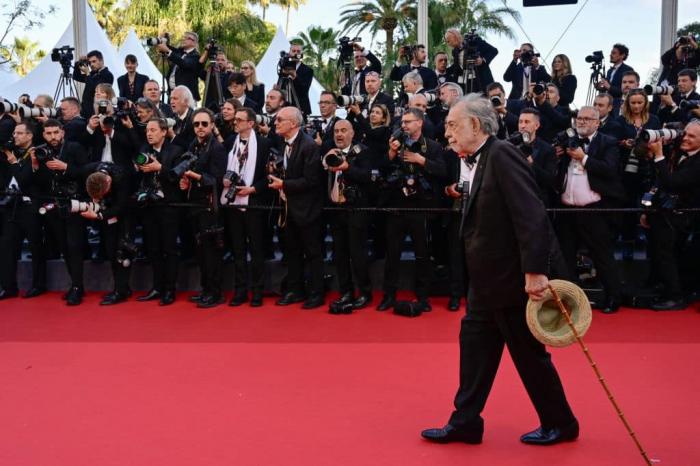The Deadline piece is very odd in that it’s extremely passionately written and calls out both Variety and The Hollywood Reporter for what it calls ‘a trail of surprisingly aggressive reports […] which used Coppola letting go some below the liners to fuel a report that his production was out of control […] One wonders why journos are working so hard trying to tarnish one of the greatest living filmmakers America has produced, at a time when he is grieving the loss of his wife.’
This whole story is very odd. It is true that a lot of the pre-premiere reporting on Megalopolis was pretty negative in tone, focusing on the cost and the seeming lack of interest from Hollywood insiders towards distributing it. It’s been written off as the year’s biggest flop before it’s played in a single American theatre. When the allegations of untoward behaviour towards his employees emerged, it seemed like a sign of Coppola’s crumbling legacy. And the video seemed damning. But the woman involved says it’s all taken out of context and being used to hurt both her and Coppola. Variety didn’t reach out to her for comment before hitting ‘publish.’
So, why has this story turned out like this? Deadline calls out sloppy reporting from its competitors, but those rival publications are also its siblings. Variety, The Hollywood Reporter, and Deadline — the three biggest trades in the entertainment industry — are all owned by Penske Media. That media empire, run by Jay Penske, also owns Rolling Stone and Billboard, and has a controlling share in Vox Media. They purchased Dick Clark Productions, which also puts them in charge of the Golden Globes, Country Music Awards, and Billboard Awards. They essentially have a stranglehold over the ways that the entertainment world is covered. Two publications went anti-Coppola and used a possible case of harassment to make the point, while another refuted it and stood tall as the pro-artist voice. But it’s all for clicks that are going into the same pocket.
And in the middle of this is the cold hard reality that instances or possibilities of harassment, assault, and workplace misconduct are seen as fair game targets for sloppy reporting and agenda-driven headlines. Not that it was ever different, of course. We’ve all seen how this rodeo goes. But there is something admittedly sinister about these reporters and editors seeing that video and not for one second thinking, ‘Maybe we should find the woman involved and hear her story.’ If she had been assaulted, wouldn’t it be basic journalistic practice to get her statement on the matter? That they didn’t suggests that her welfare was not their priority. So, what was their priority? The Penske Media shareholders seeing the line go up as their clickbait brought in ad revenue? A bunch of bitter behind-the-scenes folks who decided to weaponize a moment of possible pain to get in a few hits at a guy they don’t like?
Women’s safety and journalism wither away while corporate interests soar. That feels like what this boils down to. And boy, isn’t that so incredibly sad?



Always fucking depressing to read shit like this. I will never understand how the universal reaction isn’t to shut that sort of shit down.
It’s insane that you can look at almost any industry and it turns into this kind of paragraph.
It’s literally illegal, but laws without enforcement are just ink and paper.
Lotta shit we solved in the 40s needs reminding.